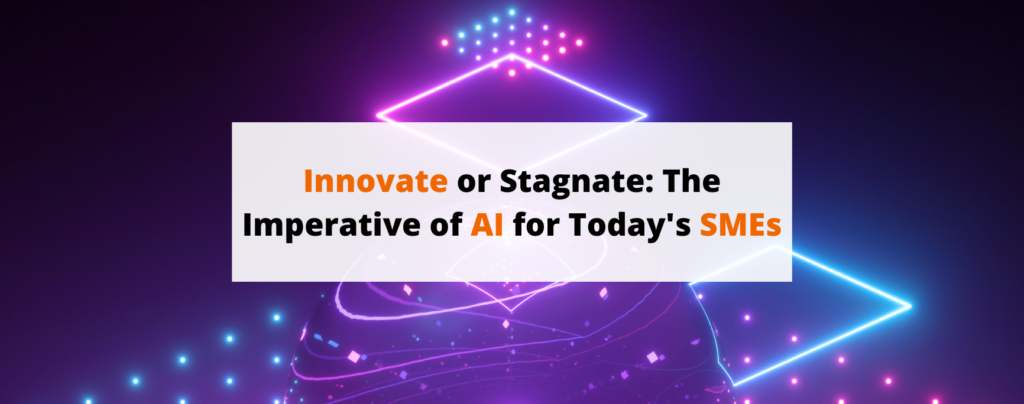Innovate or Stagnate: The Imperative of AI for Today’s SMEs

In a world where technology is evolving at a rapid pace, small and medium-sized enterprises (SMEs) find themselves at a crucial crossroads. The adoption of artificial intelligence (AI) should no longer be seen as just a technological upgrade but rather as an essential strategic and cultural transformation. For decision-makers, it is imperative to incorporate AI into the decision-making process when choosing innovations and technological solutions. This criterion should inherently be an integral part of supplier evaluations. AI has become a key pillar for staying competitive, enhancing efficiency, and fostering innovation.

At the heart of this transformation lies the need to instill an AI-centric organizational culture. This involves not only training and raising awareness among teams about AI but also a strong commitment from leadership to integrate AI into daily operations and strategic decisions. Such a culture encourages the adoption of technological solutions that inherently incorporate AI, ensuring better alignment with business processes and continuous operational improvement.
The impact of AI is clearly evident in areas such as customer relationship management, supply chain optimization, accounting, and human resources management. For instance, the use of AI-powered chatbots in customer relationship management demonstrates how AI can transform customer engagement by providing personalized responses and constant availability. In the supply chain, AI enables more accurate predictive analysis, helping SMEs better manage their inventory and respond quickly to market changes.
In accounting, integrating AI into accounting systems automates repetitive tasks and yields valuable financial insights, leading to more informed decision-making. In the field of human resources, AI is transforming recruitment processes and talent management, making recruitment more efficient and providing better analysis of staffing needs.
To successfully integrate AI, SMEs must first assess their specific needs and choose AI solutions that align with their strategic objectives. Selecting appropriate vendors, negotiating favorable contracts, and prudent cost management are essential to maximizing the benefits of AI. Needs analysis and strategic planning are crucial to ensuring that AI integration supports short-term and long-term business goals.In conclusion, for SMEs, adopting AI goes beyond simply implementing new technologies. It involves cultivating a culture that values innovation and strategically aligning AI with business objectives. Decision-makers must integrate AI into their decision-making processes and make it a critical criterion in evaluating technological solutions and providers. By adopting this approach, SMEs can not only enhance their current operations but also pave the way for new opportunities for growth and innovation in an ever-evolving business environment.
More articles on the artificial intelligence file:
And our white paper that you can obtain here ⬇️
Subscribe to the Eficio newsletter and be the first to receive our updates!

